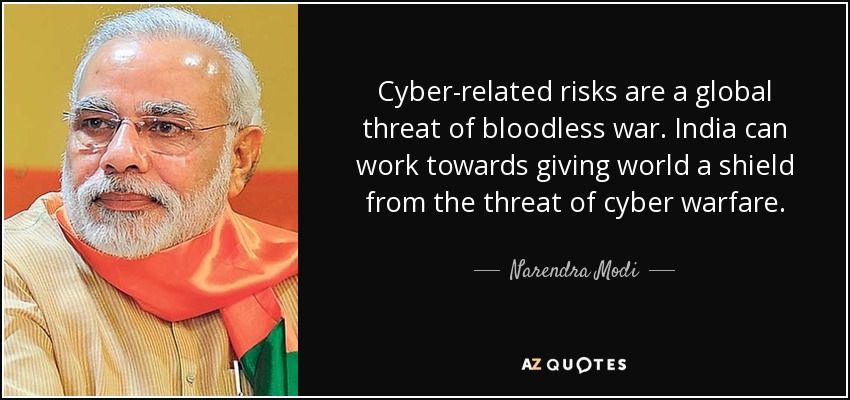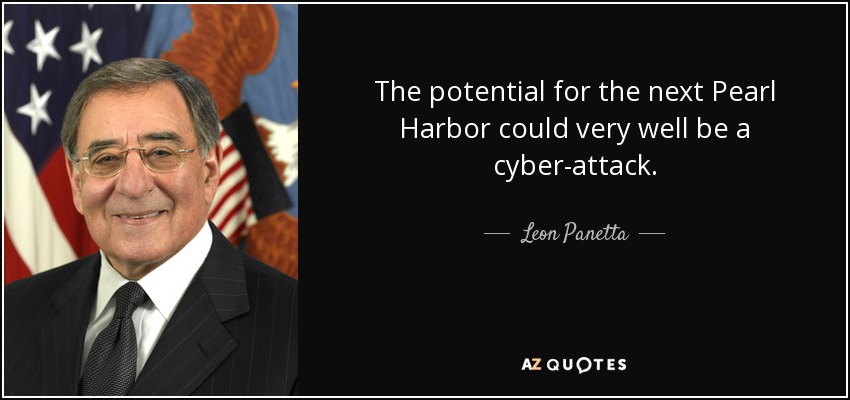Can World War 3 go online? Social media platforms across India were filled with #BoycottChina #BanChina and similar hashtags when the Indian government announced a ban on 59 Chinese apps (including the very popular video sharing app TikTok). In doing so, the government invoked its powers under Section 69A of the Information Technology Act, 2000 read with the Information Technology (Procedure and Safeguards for Blocking of Access of Information by Public) Rules, 2009. Official statements cite this: these platforms are engaged in activities that are prejudicial to sovereignty and integrity of India, defence of India, the security of state, and public order, and hence are banned.
This brings me to a very, very real and thought-provoking question: will World War 3 be fought online?

This isn’t the first time that the issue of digital warfare has emerged.
Remember the Sony hack? For the uninitiated, in November 2014, hackers infiltrated the computer network of Sony Pictures Entertainment. They stole terabytes of private data and made it public. This group called themselves the ‘Guardians of Peace’ and were alleged to be backed by the North Korean government.

The reason was insinuated towards North Korea being furious at Sony for producing The Interview, a movie that depicts the assassination of North Korean leader Kim Jong Un. Several citizen bodies, politicians and prominent personalities came to the forefront and demanded the attack to be called as an act of ‘cyber-terrorism’. (Disclaimer: there is no tangible evidence linking North Korea to this incident till date)
This is when realisation struck that the next world war may be fought with zeros and ones instead of bombs and guns.
In the last century, the face of warfare has evolved dramatically, and at an increasingly rapid rate. In World War 1, soldiers were dragging themselves through muddy trenches and dodging mortars. During World War 2, rockets and atom bombs made headlines. The Gulf Wars brought us long-range missiles and, ultimately, drones.
History is proof that with each passing decade, the concept of war is becoming more and more abstract, in terms of both, its aim as well as weaponry. Let’s translate this into practicality: earlier, wars used to be fought over resources like land or treasures, or over ideologies. Today, wars are about politics and impeccably hidden agendas. And the tools we use to fight them are evolving at lightning speed: a soldier sitting in a remote village in USA can command a drone strike in interiors of Afghanistan, while a hacker in Russia can execute code thousands of miles from a target. The battlefield is changing as much as the weaponry.
Digital Vandalism
Heard of confidential corporate information being leaked? Let’s jog our memories:
- Hackers stole over 3 million encrypted customer credit card records from Adobe
- 412.2 million accounts hacked on the adult FriendFinder Network (resulting in lakhs of divorces etc.). The stolen data spanned 20 years on six databases and included names, email addresses, passwords and account logs.
- 137 million user accounts on Canva exposed (including their email addresses, usernames, names, cities of residence, credit card information, etc.). A list of 4 million Canva account user details was shared online too
- An attack on eBay exposed confidential data of 145 million users
- Data of 162 million users of Dubsmash was stolen and uploaded for sale on the Dream Market dark web market
- Private data of 165 million users of LinkedIn was stolen and available for sale for a mere sum of 5 Bitcoins
This is just the tip of the iceberg. Data privacy is a myth. Such incidents are termed as digital vandalism and form the basis of a ‘cyberwar’. They have laid the foundation for World War 3 to happen online.
Cyberwar
Everything we do revolves around the Internet. Older technologies are finding themselves eclipsed by their Internet-based substitute solutions. So are wars.
Imagine the internet being used for oil pipeline explosions, shutting down of power grids, meltdowns of nuclear reactors, weapon systems being tampered with. All of this is the new age version of ‘Hiroshima Nagasaki attacks’. We don’t need atomic bombs being dropped from aircrafts. The same output can be obtained via one click.

The term cyberwar has been given a definition by the Pentagon (US Defence): an event involving government actors — either members of the government itself or agents of organizations funded by the government — who use cyberspace to achieve military objectives. That can involve active attacks (manipulating power grids to cut power to vast sections of a country, say), defense (securing nuclear power plants against penetration), or exploitation (taking advantage of vulnerabilities)
And if you think all this is just theoretical and fails the test of practicality, here’s a fun fact: The Pentagon is actively involved in training US soldiers in the art of cyberwar, developing long-term strategies intended to give USA an advantage on the playing field of the internet. Countries are preparing for the next world war to be fought online.
Should the common man worry about World War 3 being fought online?
Believe it or not, cyberwar is far more dangerous than a physical war. In World War 1, German forces rained mustard gas, phosgene, and chlorine gas down on enemy trenches, leaving soldiers gasping for air. This resulted in agonizing, painful deaths, which came ot known as the new and distant face of warfare. In 1925, the world collectively agreed that such weapons should never be used again, creating the Geneva Protocol. The Geneva Protocol also bans a number of other human rights abuses in war — including torture. Follow up conventions and agreements have, over time, strengthened the global position on chemical weapons.
Such ethics don’t exist for cyberwar; like mustard gas, it’s something no one imagined until it started happening. These are unchartered territories and it presents an entirely new playing field for both targets and participants alike. And in a world without ethics, one can only imagine the consequences.
Cyberwar could create opportunities for exploiting loopholes in existing treaties and agreements, in addition to creating an entirely new landscape of horrors.
Let’s practically translate this. Using chemical weapons is a violation of international law. But what if cyberwarfare creates a spill at a chemical facility? The use of nuclear weapons is controversial. But what about the exploitation of vulnerabilities at nuclear power plants or nuclear weapons facilities? These situations aren’t covered by any international law or treaty. Cyberwar could open the world to possibilities like shutting down the power supply and record-keeping at hospitals (even though attacking hospitals, medics, and doctors is barred under international law). It would also represent an escalation of attacks on civilians, as when war is so distant, it becomes difficult if not impossible to distinguish combatants from ordinary civilians. Just as Britishers feared the streets of London during World War 2, citizens of a nation at cyberwar would have to fear every component of their lives that could possibly be exploited or manipulated through cyber means.
This is no small worry.
For better or for worse, we live in a world where a substantial percentage of our lives is overseen electronically. The financial system, the grid, the water supply, medical facilities, and more are all at the mercy of cyberattacks. Which is precisely why the prospect of cyberwar is so appealing to aggressors, and so terrifying to defenders. Also, don’t forget the power of anonymity that comes along with war being held online.
For those at the helm, it also involves minimal investment. Weapons systems can cost billions of dollars, with constantly escalating costs as other nations develop counterattacks. Storage, transport, and deployment of such weapons is also extremely costly. For the budget-conscious military (if at all), cyberwarfare is the perfect opportunity to produce maximum damage with minimum spending. In fact, a country’s own weapons systems could be used against it, in what may be the most cruel and ironic attack of all.
With escalating diplomatic tensions worldwide, the question to ask ourselves isn’t if we’ll see another world war. Rather, when. And doesn’t seem to be an iota of doubt that World War 3 will be fought online. (Think: banning of Chines apps by the Indian government).
Also read: technology and suicide – a boon or a bane?
Legal Tech Asia is now on Instagram. For latest updates on what’s happening in the legaltech world, subscribe to Legal Tech Asia on Instagram.
